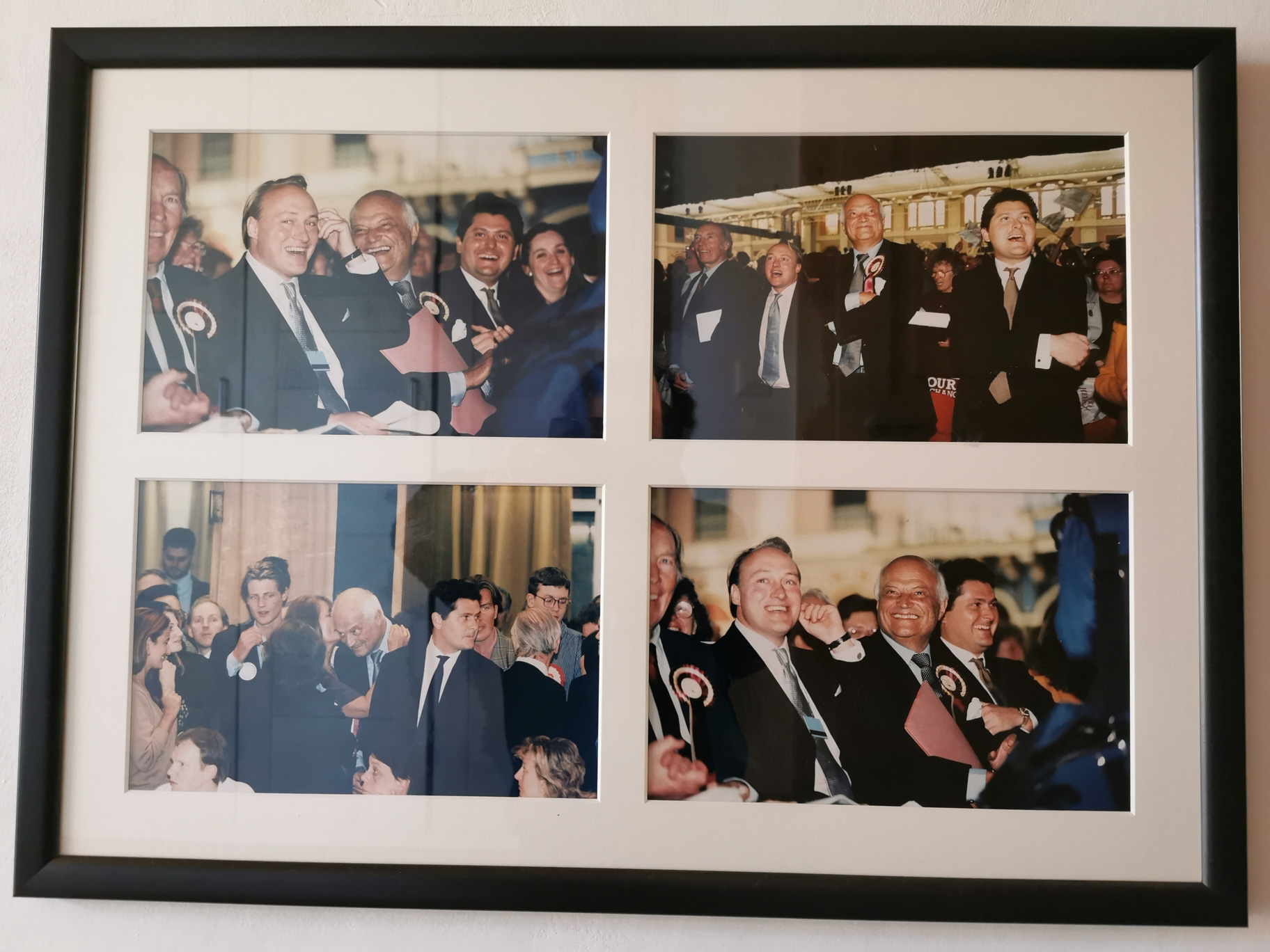Sir James Goldsmith
and the Referendum Party

Sir James Goldsmith, Patrick Robertson and Andrew Roberts at the Referendum Party election Rally at Alexandra Palace, 1997
In 1994, the Anglo-French billionaire and MEP, Sir James Goldsmith, launched The Referendum Party, the most ambitious political campaign of modern times. Its aim was to secure for the British people the right to vote on leaving the European Union. He asked Patrick Robertson to put his plans into action.
In the run-up to the 1997 general election, The Referendum Party, under Patrick’s direction, created from scratch a national political organisation capable of fighting an election against the established political parties on a single issue: Britain’s membership of the European Union.
Chaired by former Conservative Party treasurer, Lord McAlpine, and led by Sir James, the party recruited and trained 547 parliamentary candidates and 180 political agents, opened ten regional offices served by a fully staffed HQ at Westminster, and signed-up more than 160,000 registered supporters. The Referendum Party’s £35 million media campaign, launched in 1996, produced twenty-five million copies of the newspaper “Referendum Now” posted to every household in Britain, six million copies of a compelling video called “The Most Important Video You’ll Ever Watch”, and the biggest media advertising campaign of any political party. On the eve of the election, The Referendum Party held a rally of 12,000 supporters at Alexandra Palace, the largest political gathering of any party since the war.
The historic achievement of Sir James Goldsmith’s Referendum Party was to secure, before the 1997 election, a cast-iron commitment from the main political parties to hold a binding referendum before joining the Euro. That promise protected British independence until the referendum campaign of 2016. Among political commentators there is wide agreement that this promise would never have been given but for the threat posed by the Referendum Party whose actions profoundly changed the direction of British politics. In the long term, the Party’s legacy was to provide the educational foundation, training and organisation for a generation of committed Eurosceptic campaigners, many of whom went on to make important contributions to the success of the Leave campaign in June 2016.
Sir James, who had been bravely battling cancer, died a few weeks after the 1997 election.
and the Referendum Party
